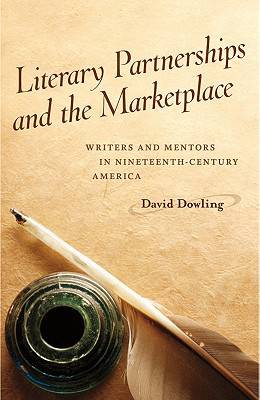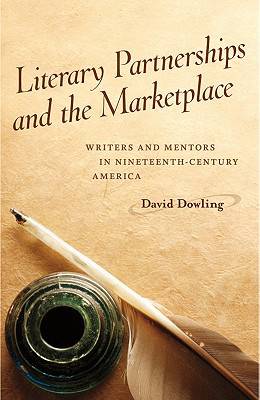
- Retrait gratuit dans votre magasin Club
- 7.000.000 titres dans notre catalogue
- Payer en toute sécurité
- Toujours un magasin près de chez vous
- Retrait gratuit dans votre magasin Club
- 7.000.0000 titres dans notre catalogue
- Payer en toute sécurité
- Toujours un magasin près de chez vous
Literary Partnerships and the Marketplace
Writers and Mentors in Nineteenth-Century America
David DowlingDescription
In Literary Partnerships and the Marketplace, David Dowling examines an often-overlooked aspect of the history of publishing -- relationships, of both a business and a personal nature. The book focuses on several intriguing duos of the nineteenth century and explores the economics of literary partnerships between author/publisher, student/mentor, husband/wife, and parent/child.
These literary companions range from Emerson's promotion of Thoreau -- a relationship fraught with pitfalls and misjudgments -- to "Davis, Inc.," the seamless joining of the literary and legal minds of Rebecca Harding Davis and her husband, L. Clarke Davis.
Dowling also considers and analyzes the teams of Washington Irving and his publisher, John Murray; Herman Melville and his editor, Evert Duyckinck; E. D. E. N. Southworth and Robert Bonner, the publisher who serialized her sentimental novels; Fanny Fern both with her brother/publisher, Nathaniel Parker Willis, and with Robert Bonner, the latter a more successful pairing; and the famous fraternal relationship between Ernest Hemingway and Gertrude Stein.
Throughout, Dowling demonstrates the intrinsic irony of authors projecting their labors of the mind as autonomous even as they relied heavily on their "literary partners" to aid them in navigating the business side of writing.
Spécifications
Parties prenantes
- Auteur(s) :
- Editeur:
Contenu
- Nombre de pages :
- 256
- Langue:
- Anglais
- Collection :
Caractéristiques
- EAN:
- 9780807138472
- Date de parution :
- 16-01-12
- Format:
- Livre relié
- Format numérique:
- Genaaid
- Dimensions :
- 140 mm x 218 mm
- Poids :
- 430 g

Les avis
Nous publions uniquement les avis qui respectent les conditions requises. Consultez nos conditions pour les avis.






